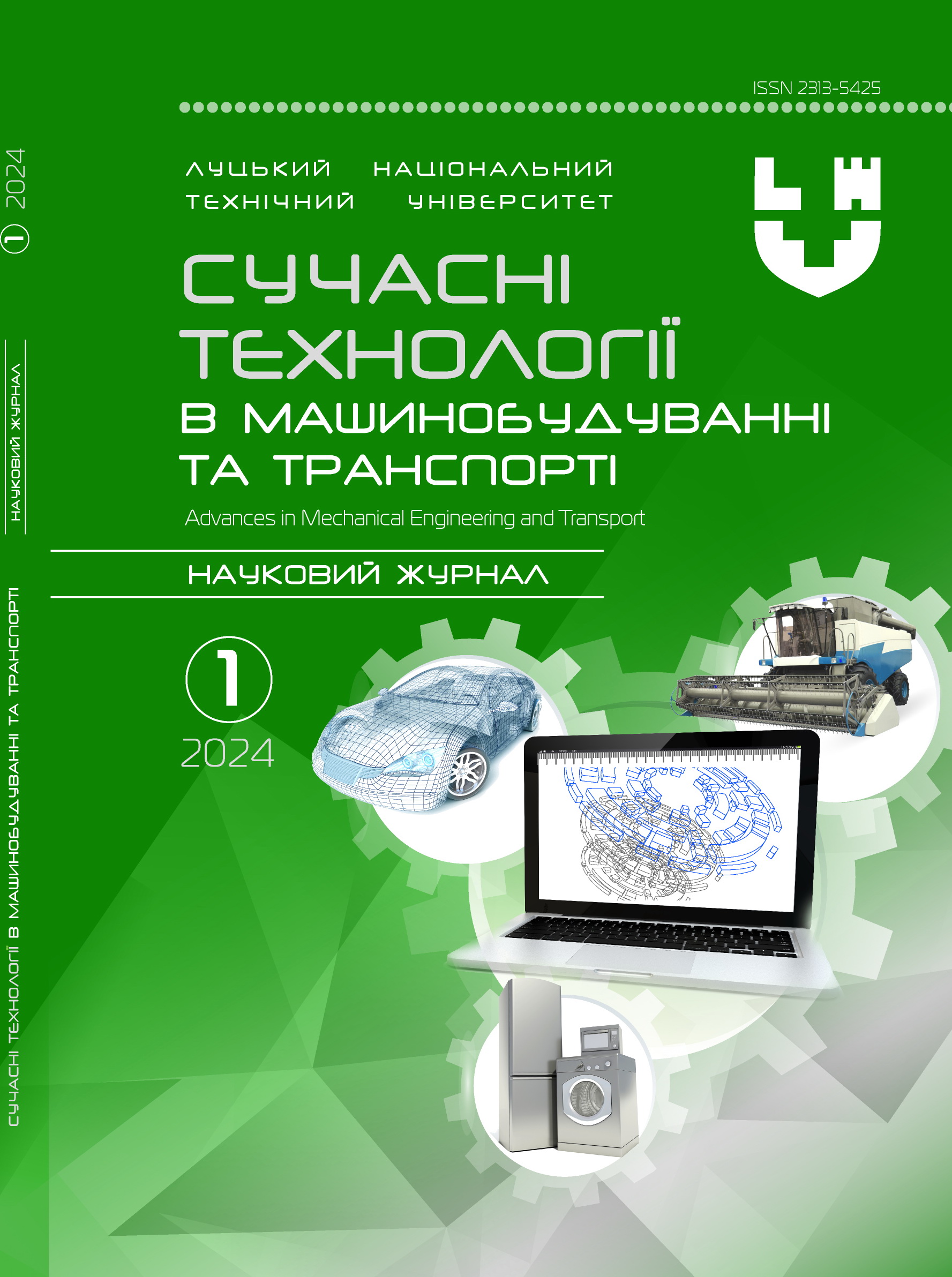ANALYSIS OF MODERN METHODS FOR OPTIMIZING TECHNOLOGICAL PROCESSES IN MACHINE-BUILDING PRODUCTION USING ARTIFICIAL INTELLIGENCE
Abstract
This article explores the integration of artificial intelligence (AI) into machine-building production processes, focusing on the optimization of gear production for KrAZ trucks. Through a detailed analysis of AI applications in various industries and a review of relevant literature, the study identifies key opportunities and challenges in implementing AI technologies in mechanical engineering. The research presents a comprehensive examination of the benefits of AI-driven systems in improving production efficiency, quality control, and predictive maintenance. A case study on automated gear grinding quality control demonstrates how AI, coupled with advanced sensors and machine learning algorithms, enhances process precision and reduces defects. Results demonstrate the effectiveness of AI-driven systems in improving precision, reliability, and cost-effectiveness in gear manufacturing, with an observed accuracy rate of approximately 95% or higher. Also highlights a precision rate of ±0.005 mm in gear tooth surface finishing, leading to consistent gear performance and reliability. Additionally, AI-driven predictive maintenance strategies are shown to predict equipment maintenance needs with up to 90% accuracy, maximizing productivity and reducing maintenance costs by up to 30%. Moving forward, further research and implementation efforts should focus on selecting and integrating appropriate AI systems into existing production processes, to maximize efficiency and innovation within the machine-building industry.
Keywords: artificial intelligence, gear grinding, quality control, data analysis, automation




